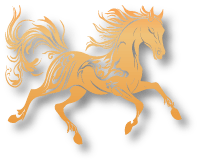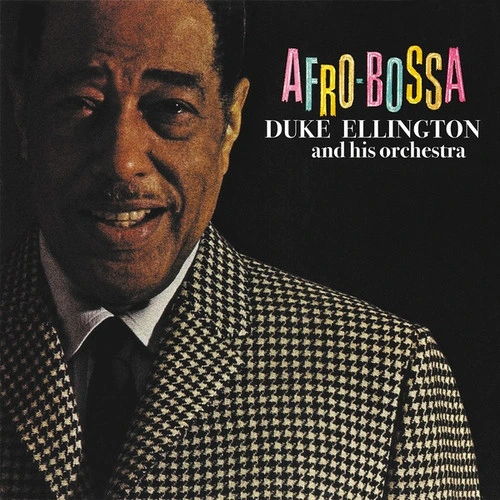Release Date To Be Announced pre-order your copy today! Orders with both pre-order and in stock items will have all in stock items shipped immediately!
Ellington Experiments On Vinyl LP!
Duke Ellingtons musical works are seemingly well documented; the likelihood of finding a good, unreleased Duke Ellington recording is slight at best.
The music of Duke Ellington is to jazz what Bachs oeuvre is to classical music: THE great benchmark, or to raise it up onto an even higher pedestal the Old Testament, the alpha and omega. With both Bach and Ellington, you can sit down at a piano simply to go through it building chords and something great always happens. This music is so rich, and it is virtually indestructible.
The tempi change, solo instruments are switched around, and, on the last take of "Afrique", you can even hear soprano vocals.
"Alerado" is a straightforward swing number, it features Wild Bill Davis on the organ, and, most notably, Cat Anderson on the trumpet, who provide a foundation for striking concepts of sonority and solo performance. The musical approach to "Afrique" is freer and more avant-garde; the foundation of the piece is a tom-tom based beat that is sustained throughout and layered with improvisations and arranged segments.
In addition to the musical aspects, this recording also documents a special moment: an American jazz legend in the twilight of his life encounters a young sound engineer and producer who is preparing to give pop a new sound now thats exciting, isnt it?
The concept of the producer as a first-rate star wasnt really a viable possibility until Rick Rubin showed up. Although Conny carried the weight to stand front and center, it seems highly improbable that he ever wouldve wanted that. He exemplified the Prussian maxim mehr Sein als Schein [be it, dont flaunt it].
Stephan Plank recalls his mother telling the story of that recording session as follows: Duke Ellington was looking for a place to rehearse in Cologne, Conny asked the owner of Rhenus Studio if he would let him use the premises, and politely asked Duke if he would allow him to do a no-frills recording of the rehearsals with matched stereo mics. This version of the story appeared plausible after the first digitization of the original tape. It lacked high tones, so it sounded rehearsal roomy however, Ingo Krauss suspected that this sound had nothing to do with the recording, but with a poorly adjusted tape recorder. Ingo worked as head sound engineer in Conny Planks studio in Wolperath after his death, and his hunch was correct. He digitized the recording again himself, and his version is considerably more vibrant.
Further research revealed that two takes had already been released on CD. Both of those releases were more severely mastered; Ingos version, on the other hand, is left in a natural state.
Features:
Vinyl LP
Selections:
Side A:
1. Alerado (take 1)
2. Alerado (take 2)
3. Alerado (take 3)
Side B:
1. Afrique (take 1)
2. Afrique (take 2)
3. Afrique (take 3/vocal version)
Ellington Experiments On Vinyl LP!
Duke Ellingtons musical works are seemingly well documented; the likelihood of finding a good, unreleased Duke Ellington recording is slight at best.
The music of Duke Ellington is to jazz what Bachs oeuvre is to classical music: THE great benchmark, or to raise it up onto an even higher pedestal the Old Testament, the alpha and omega. With both Bach and Ellington, you can sit down at a piano simply to go through it building chords and something great always happens. This music is so rich, and it is virtually indestructible.
The tempi change, solo instruments are switched around, and, on the last take of "Afrique", you can even hear soprano vocals.
"Alerado" is a straightforward swing number, it features Wild Bill Davis on the organ, and, most notably, Cat Anderson on the trumpet, who provide a foundation for striking concepts of sonority and solo performance. The musical approach to "Afrique" is freer and more avant-garde; the foundation of the piece is a tom-tom based beat that is sustained throughout and layered with improvisations and arranged segments.
In addition to the musical aspects, this recording also documents a special moment: an American jazz legend in the twilight of his life encounters a young sound engineer and producer who is preparing to give pop a new sound now thats exciting, isnt it?
The concept of the producer as a first-rate star wasnt really a viable possibility until Rick Rubin showed up. Although Conny carried the weight to stand front and center, it seems highly improbable that he ever wouldve wanted that. He exemplified the Prussian maxim mehr Sein als Schein [be it, dont flaunt it].
Stephan Plank recalls his mother telling the story of that recording session as follows: Duke Ellington was looking for a place to rehearse in Cologne, Conny asked the owner of Rhenus Studio if he would let him use the premises, and politely asked Duke if he would allow him to do a no-frills recording of the rehearsals with matched stereo mics. This version of the story appeared plausible after the first digitization of the original tape. It lacked high tones, so it sounded rehearsal roomy however, Ingo Krauss suspected that this sound had nothing to do with the recording, but with a poorly adjusted tape recorder. Ingo worked as head sound engineer in Conny Planks studio in Wolperath after his death, and his hunch was correct. He digitized the recording again himself, and his version is considerably more vibrant.
Further research revealed that two takes had already been released on CD. Both of those releases were more severely mastered; Ingos version, on the other hand, is left in a natural state.
Features:
Vinyl LP
Selections:
Side A:
1. Alerado (take 1)
2. Alerado (take 2)
3. Alerado (take 3)
Side B:
1. Afrique (take 1)
2. Afrique (take 2)
3. Afrique (take 3/vocal version)




 Turntable Accessories
Turntable Accessories Headphone Accessories
Headphone Accessories Cable Accessories
Cable Accessories Vinyl Accessories
Vinyl Accessories Compact Disc Accessories
Compact Disc Accessories







